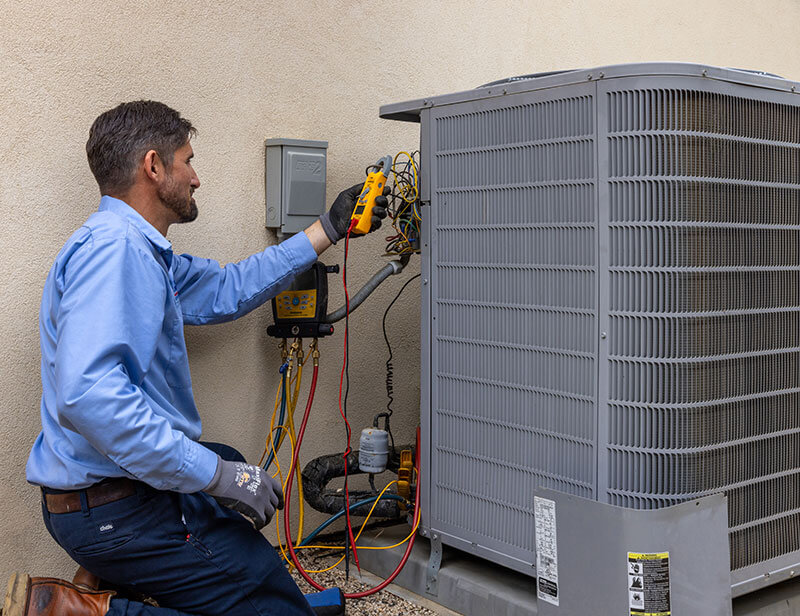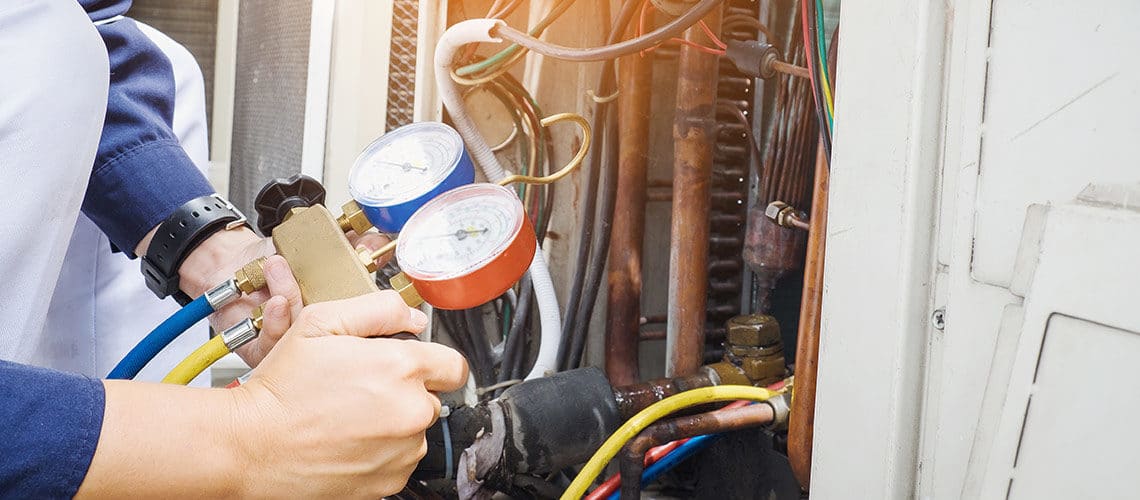Cooling Solutions You Can Count On by DMAKS HVAC Professionals.
Cooling Solutions You Can Count On by DMAKS HVAC Professionals.
Blog Article
How to Pick the Right HVAC System for Your Needs
Selecting the ideal cooling and heating system is a vital decision that needs careful consideration of different variables. Begin by examining your home's size, format, and unique requirements, as these elements dictate the required ability and arrangement of the system. Furthermore, developing a budget plan that incorporates setup and long-term functional prices is important. As you consider your choices, recognizing energy effectiveness ratings and the ramifications of your local climate will play a considerable role in your choice. Nonetheless, the myriad of system kinds available can complicate this process, leading one to wonder which path eventually brings about optimum comfort and effectiveness.
Analyze Your Home Size
Analyzing your home dimension is an essential first action in picking the proper Cooling and heating system. A HVAC system that is also tiny will certainly struggle to maintain comfy temperatures, leading to boosted energy intake and use on the unit.
To properly assess your home dimension, gauge the square video of each room, taking into consideration elements such as ceiling elevation and the layout. Furthermore, think about the insulation quality and the number of windows, as these aspects influence thermal performance. Homes with open floor plans may require various system configurations contrasted to those with several split spaces.
Using the Manual J tons estimation technique can give a much more exact estimate of your a/c requires. This method represent numerous elements, consisting of neighborhood environment, solar gain, and occupancy patterns. By thoroughly assessing these facets, you can guarantee that your chosen HVAC system is appropriately sized, resulting in enhanced comfort, power effectiveness, and durability of the devices.
Determine Your Spending Plan
Determining your budget plan is a critical action in the a/c system selection process, as it establishes the specifications for your alternatives - DMAKS HVAC. An a/c system is a substantial financial investment, and comprehending your economic restrictions will certainly help narrow down choices that fit within your means
Begin by examining not just the initial acquisition rate but also setup costs, which can vary dramatically relying on the intricacy of the task. Additionally, think about recurring costs such as maintenance, repair services, and power intake. A system might appear inexpensive originally however can cause higher prices in time if it is less efficient.
It is suggested to assign a backup fund for unanticipated expenses that might emerge during installment or initial system modifications (DMAKS HVAC). In addition, explore financing options or refunds that may be available, as these can relieve the worry of upfront costs
Eventually, having a clear budget plan allows you to involve with heating and cooling specialists more properly, guaranteeing you receive tailored guidance that straightens with your monetary goals and home requirements. By being thorough about your spending plan, you can make informed choices that enhance convenience without endangering economic security.
Evaluate Energy Effectiveness
Power performance plays a crucial duty in the overall performance and cost-effectiveness of your cooling and heating system. When selecting a system, it is vital to consider its energy efficiency rankings, as these figures directly influence your energy bills and ecological footprint. Look for systems with a high Seasonal Energy Efficiency Ratio (SEER) for cooling down and a high Annual Fuel Application Efficiency (AFUE) score for home heating. Higher scores suggest higher efficiency, indicating more comfort for much less power intake.
In addition, consider the Power Celebrity certification, which indicates that the system satisfies stringent effectiveness guidelines set by the Epa. Purchasing an Energy Star-rated HVAC system can bring about significant cost savings with time, particularly in areas with extreme temperature content level fluctuations.
Another factor to assess is the system's size and capacity. An extra-large or undersized unit can result in ineffectiveness and raised energy expenses. DMAKS HVAC. Correct sizing, typically figured out via a Hand-operated J load computation, guarantees that the system operates at optimal effectiveness


Take Into Consideration Climate and Setting
When picking a cooling and heating system, it is essential to take into consideration the neighborhood environment and environmental advice problems, as these elements considerably affect the system's performance and efficiency. Different regions experience differing temperature extremes, humidity degrees, and seasonal modifications, every one of which influence home heating and cooling demands.

Furthermore, local ecological aspects, such as air top quality and possible allergens, must educate your choice. Systems outfitted with advanced purification technologies can help minimize contaminants and supply cleaner air. Furthermore, take into consideration the power sources offered in your location-- some a/c systems are extra reliable when powered by natural gas or renewable power sources.
Ultimately, aligning your heating and cooling system selection with your neighborhood climate and ecological go to the website considerations will certainly result in enhanced convenience, improved efficiency, and lower energy costs.
Explore System Types and Functions
As home owners look for to enhance comfort and efficiency, exploring the various types of heating and cooling systems and their distinct functions comes to be necessary. The key types of HVAC systems include main air conditioning, heat pumps, ductless mini-split systems, and heating systems. Each system supplies unique benefits tailored to various needs and choices.
Central air conditioning systems offer uniform cooling throughout a home, making them ideal for bigger spaces. Warm pumps function as both heating and cooling remedies, making use of electrical energy to move warmth, which can cause reduced energy expenses. Ductless mini-split systems are coming to be significantly prominent due to their versatility and ease of installment, enabling home owners to regulate the temperature in individual areas without considerable ductwork.

Verdict
In conclusion, picking the ideal a/c system requires careful factor to consider of various aspects, consisting of home dimension, spending plan constraints, energy effectiveness, regional climate, and readily available system kinds. A thorough evaluation of these elements makes sure optimal comfort and cost-effectiveness. By complying with an organized approach, home owners can make informed choices that straighten with their particular demands and choices, inevitably leading to boosted interior air top quality and power cost savings.
Report this page